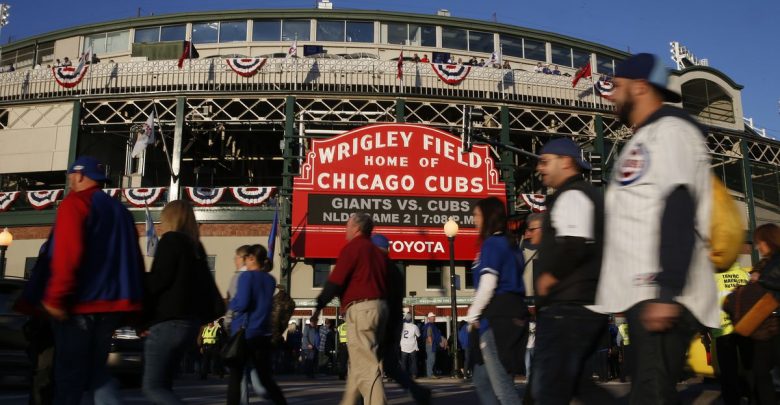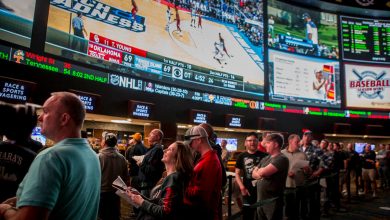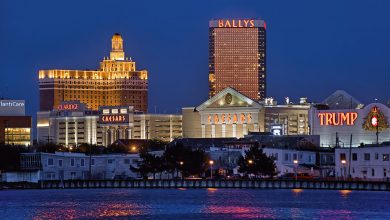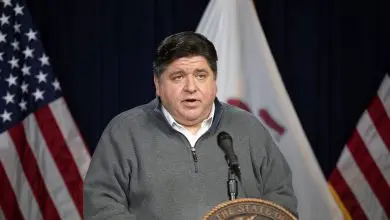Illinois Sports Betting Bill Sees Amendments

Illinois Rep. Michael Zalewski recently added two new amendments to the state’s sports betting bill. These are some very important amendments to not only the bill, but future states’ bills as these will establish licensing and tax fees unprecedented in the sports betting market. Zalewski has taken over as primary sponsor of the bill, which appears to be the new Illinois sports betting vehicle. The only major change from previous drafts of the bill is that neither amendment requires in-person registration for mobile wagering.
Amendment 1
The first proposed amendment authorizes Illinois sports betting for riverboat casinos, horse racing tracks, off-track betting parlors, video gaming operators, and the lottery.
Riverboats will be able to operate a sportsbook in their facility and use either one online “skin” or one brick-and-mortar sportsbook in any location. Horse racing tracks will be allowed a sportsbook and use one online “skin” or have a sportsbook in three of their state-authorized Off-Track Betting facilities. The video gaming operators can place sportsbooks in 10% of their licensed establishments and operate one online “skin.”
This amendment also establishes fees and taxes. For instance, all of the master license fees will be worth a whopping $10 million or 5% of net terminal income, adjusted gross receipts or total handle. Whichever is greater, of course. The “skin” licenses are pegged to be $5 million each.
If an operator is adding a sports stadium, OTB, or any other brick-and-mortar location is another $5 million. Illinois would set the tax rate at 25% of adjusted sports wagering receipts and, since the lottery can allow parlay wagering in 2,500 retail locations, their initial license fee is $30 million with a tax rate of 100% on sports wagering receipts.
Amendment 2
This second amendment does things a bit differently. It does not include the lottery. However, it does allow for companies such as DraftKings Sportsbook and FanDuel Sportsbook to get their own licenses, only at a higher cost. On a sour note, this amendment gives sports leagues integrity fees and data deals.
There will be seven brick-and-mortar licenses at the cost of $15 million each, and these are awarded to the first seven applicants among the state’s many riverboats, horse tracks, and video gaming operators. Three online licenses are also made available for $20 million each, and there is a $5 million skin license.
The tax rate of 25% on annual adjusted gross receipts with funds divided between the State Construction Account Fund, Pension Stabilization Fund, and Common School Fund. The state’s tracks are hit with a 2% of AGR for the Horse Racing Purse Fund.
While those are some big numbers, this amendment saves the worst news for last, and it begins with an integrity fee of 0.2% on handle paid out to the sports leagues. Then, in-game wagers would require the use of official league data. Not only that, this amendment bans wagering on collegiate sporting events taking place in Illinois.
There is also the “Bad Actor Clause,” which prohibits any entity that participated in unlawful gambling operations from receiving any type of sports wagering license for a period of three years. Ahem, DraftKings and FanDuel.
Illinois Stakeholders Push Back
Obviously, these amendments haven’t gone over well with many people. One of them is Tom Swoik of the Illinois Casino Gaming Association. He is representing nine of the 10 riverboat casinos in the state and was quick to point out that Iowa recently passed sports betting legislation with a 7.5 percent tax rate while Indiana did the same with a 9.5 percent tax. Both states also came along with licensing fees that topped out at $100,000.
“I’m not saying we need to be as low as Iowa or Indiana necessarily, but when you’re talking three-to-four times more, it just seems outrageous,” Swoik said.
The state’s concern is if the legislature would be able to raise the tax rate if it were initially too low. Also, Rep. Zalewski thinks the Illinois industry can sustain a higher tax rate because its gaming market and population centers are much more dense than Iowa or Indiana. This is a good point too.
We must remember, Chicago has five major sports teams, and the Big Ten Conference is huge across the state. There are only a few states with a bigger market than Illinois, and this should not be forgotten.
Swoik responded that the higher rate could force consumers to go to the neighboring states or the black market to place bets. However, mobile wagering pretty much shuts this idea down. Traveling across state lines to gamble will be outdated due to the convenience of mobile betting.
Yes, sports gamblers will hunt down the best odds. However, thinking they will drive hours to get an extra half point on a spread or 5% on the moneyline is absurd.
“It’s all about what the odds are,” Swoik said. “If we’re paying three-to-four times more in taxes, we’re going to have to offer lower odds.” Again, this may be true, but with sportsbooks, apps, kiosks, casinos, tracks, and OTBs littered across the state all run by different operators. The odds in neighboring states just won’t be that much an incentive.
However, this is the negotiation stage, and this is Swoik’s job to raise these types of concerns. Just as it’s Zalewski’s charge to do the same. We just have to wait and see how it will shape Illinois legal sports gambling.





